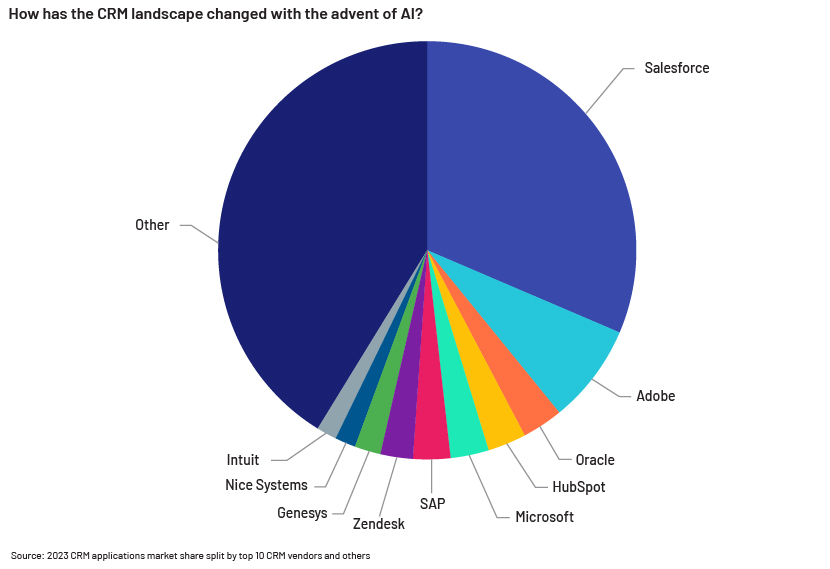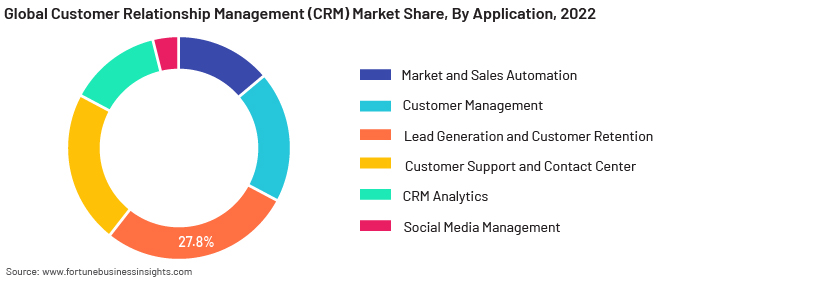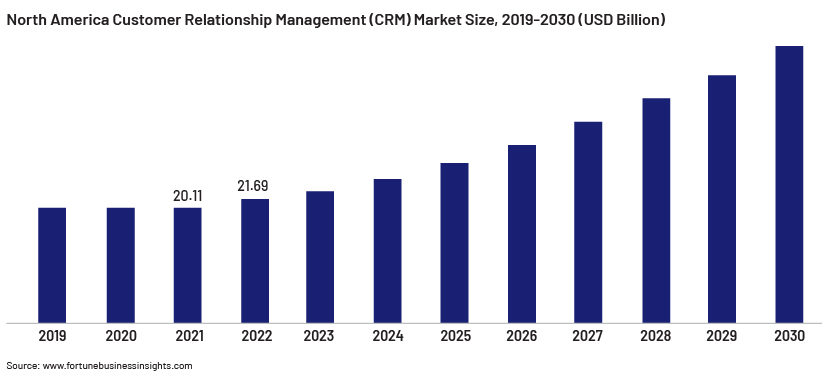Published on August 4, 2025 by Praveen Kariyawasam
Introduction
Due to the progress in the creation of advanced language models and, more recently, autonomous agentic systems, artificial intelligence (AI) is shaping the future wave of change, and the digital world is transforming with a speed not seen before. These models can reason, plan and act autonomously towards stated goals, along with responding to external inputs. Technologies such as ChatGPT and other next-generation generative AI systems are not just revolutionising information discovery; they are also transforming industries. Customer relationship management (CRM) systems are now able to transform from reactive data systems into proactive cognitive assistants that can forecast customer needs and provide business outcomes with never-before-seen accuracy, from real-time decision-making to personalised touchpoints through agentic AI. With their in-house large language models, corporate titans such as Salesforce have entered the mix and are promising to revolutionise data analytics, prediction of market trends and decision-making. Organisations are rethinking their approach to CRM in the light of the ever-evolving digital landscape.
Old CRM practices are most often left behind as companies adopt AI-driven solutions. CRM is no longer just about managing customer data. It is a dynamic process that involves the use of data analysis, innovative technology and an altogether-customer-focused strategy.
This blog explains how AI has influenced CRM technology, weighs its advantages and disadvantages and considers the future of AI-powered CRM systems.
Why is CRM important?
CRM systems seek to improve retention, enhance customer satisfaction and eventually drive business. A CRM system is an essential tool, as it enables an organisation to learn more about its customers, understand their needs and design personalised experiences to serve them. In the process, revenue is boosted and customer loyalty increased. CRM software also gives an organisation a 360° view of a customer’s position in the sales process by tracking customer interactions across channels such as social media and emails.
How has CRM evolved?
The roots of contemporary CRM were laid in the 1980s, when a computerised rolodex stored customer names and addresses like an early database. By the 1990s, with the boom of technology, CRM systems were developed with features such as in-depth analysis of shopping data, referral programmes and managing customer data along with interaction tracking. Advanced features such as automated processes and customer interaction capabilities were added; as they have matured, with the ability to be accessed from any location at any time, cloud-based CRM systems have become the most-sought-after solution.
The impact of AI on CRM technology
These AI-powered CRM tools analyse customer behaviour in real time, automate tasks such as data management and interaction tracking, and enable businesses to focus on strategic activities. AI chatbots enhance customer support, while predictive insights help businesses anticipate changes and tailor content to individual preferences.

As CRM providers increasingly integrate AI technologies for market differentiation, demand for specialists skilled in these tools is also rising. Salesforce, a major player in the CRM market, launched its AI product Salesforce Einstein in 2016; this is now essential to its ecosystem.
The new Einstein GPT combines data from the Salesforce Data Cloud with OpenAI's ChatGPT for improved natural-language prompts, marking a significant milestone in the integration of generative AI in CRM. In 2019, the company partnered with OpenAI for AI research and integration of its models. In December 2020, Salesforce acquired AI-based messaging platform Slack and has since launched a number of AI tools, including Sales GPT, Service GPT and Marketing GPT.
Benefits and challenges of integrating AI with CRM
Advantages of integrating AI with CRM include enhanced productivity, increased customer satisfaction and in-depth knowledge of a customer’s behaviour. However, it also presents challenges, one of the most significant being data quality. For AI algorithms to provide useful information, precise and current data is required. Inaccurate or outdated data would cause the algorithms to produce flawed insights, leading to poor decisions. Therefore, a data-quality strategy must be in place prior to integrating AI with a CRM system. These systems are costly to deploy, and their successful utilisation calls for specialised skills and expertise.
What the future holds for AI-powered CRM systems
The future seems bright for CRM systems since all the major players in CRM solutions have already started to incorporate AI technologies into their systems. These would be even more advanced as the technology improves, providing companies with more effective tools to deal with and analyse customer data.


As natural-language technologies improve, chatbots and virtual assistants will become even more sophisticated, providing customers with more accurate responses. One of the major challenges is the lack of human touch, but this is also being addressed by improvements in sentiment analysis that help agents identify customer emotions, including satisfaction and frustration, across communication channels such as mobile, live chat, email and social media.
We also expect to see more integration between CRM systems and other technologies such as the internet of things, virtual reality and augmented reality. By combining data from multiple sources, businesses could obtain a more in-depth view of their customer base, enabling them to provide even more personalised experiences.
With potential uses of the technology discovered every day, what we see now is just the beginning of the transformative power of AI-powered CRM tools.
How Acuity Knowledge Partners can help
Our expert team of domain specialists and consultants provide personalised services to clients, ranging from CRM configuration, management and administration, development and customisation, data reporting, platform integration, lead scoring solutions, lending operations and service platforms, workload automation and scheduling tools, data cloud platforms and automation and integration tools.
Our expertise includes integration tools such as Microsoft Azure, workflow management platforms such as Confluence and Workfront, and CRM systems such as Salesforce and HubSpot. We employ Python and Databricks in data engineering that help us provide insights on best practices and streamline data processes for clients. This integration allows for quicker data automation, reduces administrative tasks for analysts, enhances accuracy in reporting and supports improved management decisions.
References:
-
https://commence.com/blog/2020/09/22/augmented-reality-and-virtual-reality-in-crm/
-
https://www.sutisoft.com/blog/know-how-artificial-intelligence-is-changing-crm/
-
https://www.grandviewresearch.com/industry-analysis/customer-relationship-management-crm-market
Tags:
What's your view?
About the Author
Praveen is part of Financial Marketing Services (FMS) at Acuity Knowledge Partners, where he focuses on web content publishing and CRM services. He has over 4 years of experience in web development and content management. Additionally, he has experience in the application and execution of W3C standards, web design and applications, and web accessibility guidelines Prior to joining Acuity Knowledge Partners, he worked as a freelance web developer.
Like the way we think?
Next time we post something new, we'll send it to your inbox







